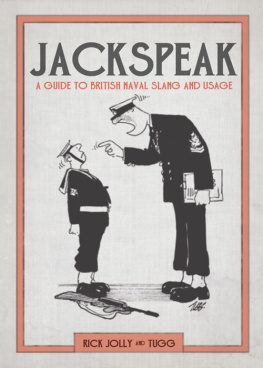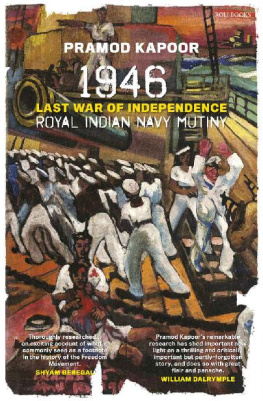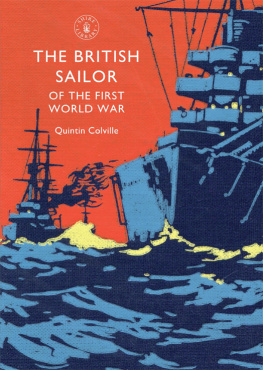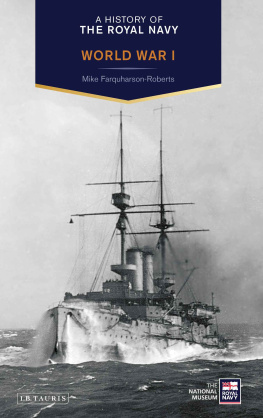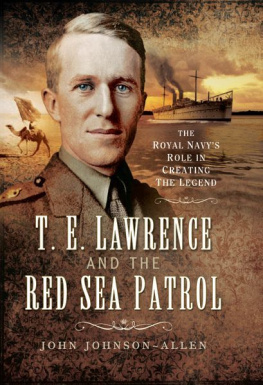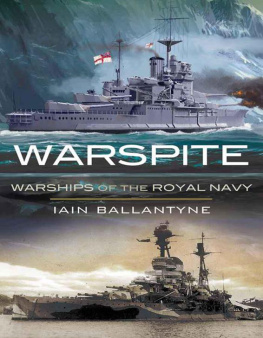Percy S. Gourgey - The Indian Naval Revolt of 1946
Here you can read online Percy S. Gourgey - The Indian Naval Revolt of 1946 full text of the book (entire story) in english for free. Download pdf and epub, get meaning, cover and reviews about this ebook. year: 1996, publisher: Sangam Books Ltd, genre: Home and family. Description of the work, (preface) as well as reviews are available. Best literature library LitArk.com created for fans of good reading and offers a wide selection of genres:
Romance novel
Science fiction
Adventure
Detective
Science
History
Home and family
Prose
Art
Politics
Computer
Non-fiction
Religion
Business
Children
Humor
Choose a favorite category and find really read worthwhile books. Enjoy immersion in the world of imagination, feel the emotions of the characters or learn something new for yourself, make an fascinating discovery.

- Book:The Indian Naval Revolt of 1946
- Author:
- Publisher:Sangam Books Ltd
- Genre:
- Year:1996
- Rating:5 / 5
- Favourites:Add to favourites
- Your mark:
- 100
- 1
- 2
- 3
- 4
- 5
The Indian Naval Revolt of 1946: summary, description and annotation
We offer to read an annotation, description, summary or preface (depends on what the author of the book "The Indian Naval Revolt of 1946" wrote himself). If you haven't found the necessary information about the book — write in the comments, we will try to find it.
The Indian Naval Revolt of 1946 — read online for free the complete book (whole text) full work
Below is the text of the book, divided by pages. System saving the place of the last page read, allows you to conveniently read the book "The Indian Naval Revolt of 1946" online for free, without having to search again every time where you left off. Put a bookmark, and you can go to the page where you finished reading at any time.
Font size:
Interval:
Bookmark:
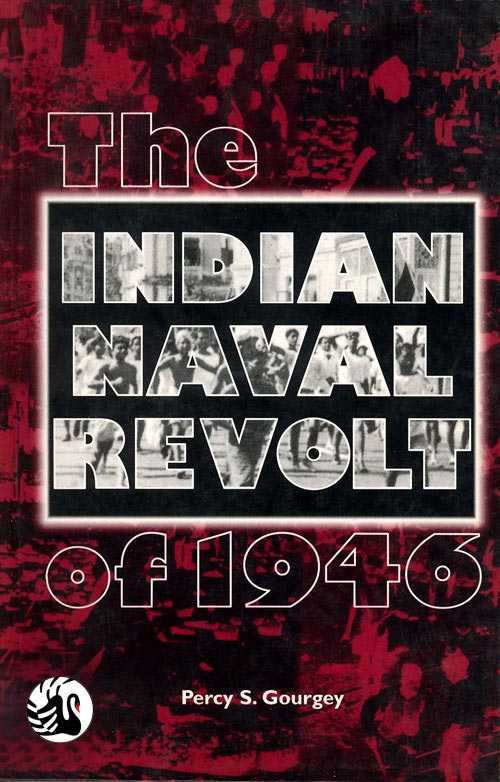
of 1946
Ex-Lieutenant RINVR, MBE, FRSA

Orient Blackswan Private Limited
Registered Office
3-6-752 Himayatnagar, Hyderabad 500 029 (A.P.), INDIA
Other Offices
Bangalore, Bhopal, Bhubaneshwar, Chandigarh, Chennai,
Ernakulam, Guwahati, Hyderabad, Jaipur, Kolkata,
Lucknow, Mumbai, New Delhi, Noida, Patna
Orient Blackswan Private Limited 1996
First Published 1996
Reprinted 1998
eISBN 978-81-250-4623-3
e-edition:First Published 2012
All rights reserved. No part of this publication may be reproduced, distributed, or transmitted in any form or by any means, including photocopying, recording, or other electronic or mechanical methods, without the prior written permission of the publisher, except in the case of brief quotations embodied in critical reviews and certain other noncommercial uses permitted by copyright law. For permission requests write to the publisher.
Contents
| 1 |
| 2 |
| 3 |
| 4 |
| 5 |
| 6 |
| 7 |
| 8 |
| 9 |
| 10 |
Foreword
In the early weeks of 1946, I was privileged to be a member of the Parliamentary 'Goodwill' Mission to India, After a strenuous and exciting tour we reached England again on February 12, and a week later began the serious episode which Mr Gourgey so graphically narrates in the following pages.
While there is no connection between the two events, nevertheless my experience of the tense political atmosphere then prevailing in India enabled me to appreciate why the 'strike' or 'mutiny' of Indian naval ratings occurred.
Among innumerable interviews ranging from those with Gandhi, Nehru and Jinnah to humble villagers, I also met ex-members of the 'Indian National Army' composed, as the author mentions, of Indian prisoners-of-war in Japanese hands and led by Subhas Chandra Bose. They were obviously anxious and spiritually bewildered as they sought to analyse, and then convey to me, their motivation in first fighting with and for, and then against, the British. On my part, I confess to a certain embarrassment, for as a British citizen, and Member of Parliament, I had no sympathy with active or passive support for the Axis Powers and believed that the victory of Japanese forces in India would have been disastrous not merely to European but also to Indian and Asian democracy and freedom. Yet I realised that the action of those ex-prisoners who joined the INA did not issue from admiration for Japan, but from patriotic zeal for the independence of India. I too endorsed that purpose, although not the expedient unhappily accepted by Bose and his followers. This, indeed, was also the attitude of Gandhi and most of the Indian leaders, notwithstanding considerable evidence of contrary emotional admiration for Bose in many Indian quarters.
This psychological ambivalence appears in Mr Gourgey's record of the naval disturbance, even if its initial incidence at Bombay was due to resentment against slow demobilisation, inadequate pay, alleged contemptuous treatment and other human grievances. Such agitation, however, inevitably fanned the hot embers of nationalism so that economic, sociological and political elements fused (as they also did in the French and Russian revolutions) in the resultant flames. Moreover, hardship had frequently been attributed to alien authority in India, and I found a general assumption with many poor Indians that when 'Quit India' had been obeyed by the British, more rice would speedily follow.
No doubt, normally the relationship between British naval officers and Indian ratings had not been unfriendly, but apart from a continuously latent resentment against a preponderating British officer class, there were instances of racial oral humiliation, an example of which has been referred to by the author early in his record.
The flames flared and spread, to the angry alarm of the British authorities and to the discomfiture of Indian Congress leaders whose onerous task would have suffered gravely had the revolt continued. Those leaders recognised the poignancy of conflicting loyalties among the ratings, and for that matter among all Indian servicemen and civil servants, but confusion would have overwhelmed their efforts had the naval revolt expanded. To the British it was 'mutiny', even as the previous historic defiance by Indian leaders and their followers had been regarded as intolerable lawlessness if not treachery. To Indians, who sought liberation from British domination, it could be as much patriotic resentment as it was in the minds of Ulstermen in Northern Ireland at the prospect of absorption in a Catholic-dominated seceding Irish Government, or in the minds of the French maquis fighting against Nazi occupation of their country. One man's 'mutiny' is another man's 'loyalty'.
Even so, the Congress itself could not tolerate the sectional or local impulses that would nullify its responsible authority and bring about anarchic disintegration, even though it sympathised with its compatriots in their immediate grievance and their ultimate aspiration. This was but one component of the situation. Another was the perplexing dilemma attending the pursuit of Gandhian principles of satyagraha or non-violent resistancea dilemma still haunting present Indian policy. In this connection the dialogue between ex-Lieut P.S. Gourgey and Punnu Khan has a moving significance, not least the contention of the latter that he and other would be satyagrahis could not be held responsible for violent excesses by those who could not or would not observe the requisite moral and spiritual discipline. The report of the conversation in the context of disorder and violence may not be verbatim but in essence it is not only true but also illuminates a crucial moral issue beneath the external circumstances then prevailing.
I commend Mr Gourgey's record both for its historical and human value. It is one episode out of very many, but it contains much that illustrates the consummation of a massive political struggle, the immediate occasion for the over-flowing of human discontent and the interplay of the many forces that operate in a crisis of human behaviour. I am grateful that Mr Gourgey has asked me to write this 'Foreword', for while there may be some things to deplore in those distant years of prolonged striving for Indian freedom, yet I believe there is far more that heartens and inspires beyond the tribulation. Between the time I first met the author and the present time, India has become a free and sovereign State in equality with Britain in the Commonwealth and with all other nations. Her destiny, like her Navy, is in her own hands and those of us who played even a fragmentary part to achieve this can appreciate both the tragedy within the struggle and the majesty of the achievement.
by Lord Sorensen (formerly Reg W. Sorensen, MP)
Preface and Acknowledgements
In May and August 1995 respectively, the fiftieth anniversary of VE-Day and VJ-Day was marked by many celebrations and functions in those nations which played their part in the Second World War. A war in which over fifty million people were killed between 1939 and 1945 during the aggressive campaigns launched by Nazi Germany and imperialist Japan to achieve world domination.
It is worthy of note that India played a role in this War through the participation of the largest volunteer armed forces in the worlda fact that was recognised in the representation of these forces at victory parades held in London and elsewhere in 1945. It was also a momentous period in India's unique freedom struggle leading to independence from two centuries of British rule in August 1947. One dramatic event of the time was the famous 'Indian National Army' trials in Delhi in 1946. Another equally dramatic but not so well known event was the Royal Indian Navy 'mutiny' which took place in February 1946 when, within the space of one short week, the whole gamut of emotions experienced in the national liberation movement were manifestedfear, suspicion, jealousy, frustration and courage.
Next pageFont size:
Interval:
Bookmark:
Similar books «The Indian Naval Revolt of 1946»
Look at similar books to The Indian Naval Revolt of 1946. We have selected literature similar in name and meaning in the hope of providing readers with more options to find new, interesting, not yet read works.
Discussion, reviews of the book The Indian Naval Revolt of 1946 and just readers' own opinions. Leave your comments, write what you think about the work, its meaning or the main characters. Specify what exactly you liked and what you didn't like, and why you think so.

